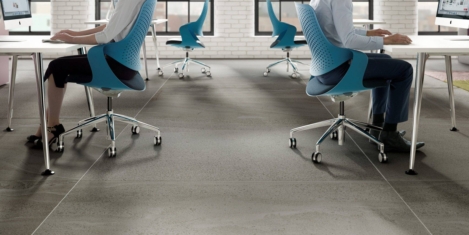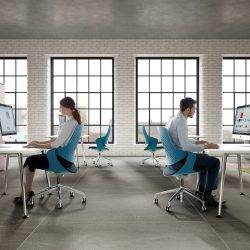May 19, 2017
Only one in four people with a long-term mental health issue are in work 0
 Only a quarter of people with a long term mental health issue are in work, according to a report published by the TUC to coincide with its Disabled Workers’ Conference yesterday. The report, Mental health and employment, contains new analysis of official employment statistics, which finds that while 4 in 5 (80.4 percent) non-disabled people are in work, people with mental illness, anxiety or depression have substantially lower employment rates. Only one in four (26.2 percent) people with a mental illness lasting (or expected to last) more than a year are in work. Less than half (45.5 percent) of people with depression or anxiety lasting more than 12 months are in work. The TUC is concerned that this suggests employers are failing to make adequate changes in the workplace to enable people with mental illnesses, anxiety or depression to get a job, or stay in work. Mental health problems can often be ‘invisible’ to others, so a lack of mental health awareness amongst managers and employers is also likely to be a factor.
Only a quarter of people with a long term mental health issue are in work, according to a report published by the TUC to coincide with its Disabled Workers’ Conference yesterday. The report, Mental health and employment, contains new analysis of official employment statistics, which finds that while 4 in 5 (80.4 percent) non-disabled people are in work, people with mental illness, anxiety or depression have substantially lower employment rates. Only one in four (26.2 percent) people with a mental illness lasting (or expected to last) more than a year are in work. Less than half (45.5 percent) of people with depression or anxiety lasting more than 12 months are in work. The TUC is concerned that this suggests employers are failing to make adequate changes in the workplace to enable people with mental illnesses, anxiety or depression to get a job, or stay in work. Mental health problems can often be ‘invisible’ to others, so a lack of mental health awareness amongst managers and employers is also likely to be a factor.











 Less stress and better workplace relationships are the reason why the happiest regions to work in the UK are Yorkshire and the Humber; while uninteresting work is the reason why employees in Scotland and the South are the most unhappy. Research into
Less stress and better workplace relationships are the reason why the happiest regions to work in the UK are Yorkshire and the Humber; while uninteresting work is the reason why employees in Scotland and the South are the most unhappy. Research into 






 The UK economy is about to be hit by a fall in basic pay awards and real wages warns the CIPD, which has found that employers’ median basic pay expectations in the 12 months to March 2018 have fallen to 1 percent compared to 1.5 percent three months ago, which is lower than at any time during the past three and a half years. The findings from the latest CIPD/The Adecco Group Labour Market Outlook survey are consistent with recent Labour Market Outlook reports, which have indicated a slowing in the rate of basic pay growth, and with official labour market data. The report also found that 12 percent of private sector firms say the UK’s decision to leave the European Union has led them to consider relocating some or all of their business operations abroad. Popular relocation destinations include the Republic of Ireland (18 percent), Germany (17 percent) and France (13 percent).
The UK economy is about to be hit by a fall in basic pay awards and real wages warns the CIPD, which has found that employers’ median basic pay expectations in the 12 months to March 2018 have fallen to 1 percent compared to 1.5 percent three months ago, which is lower than at any time during the past three and a half years. The findings from the latest CIPD/The Adecco Group Labour Market Outlook survey are consistent with recent Labour Market Outlook reports, which have indicated a slowing in the rate of basic pay growth, and with official labour market data. The report also found that 12 percent of private sector firms say the UK’s decision to leave the European Union has led them to consider relocating some or all of their business operations abroad. Popular relocation destinations include the Republic of Ireland (18 percent), Germany (17 percent) and France (13 percent).















May 17, 2017
A nuanced approach to the design of the coworking office 0
by Ajay Chopra • Comment, Flexible working, Workplace design
More →